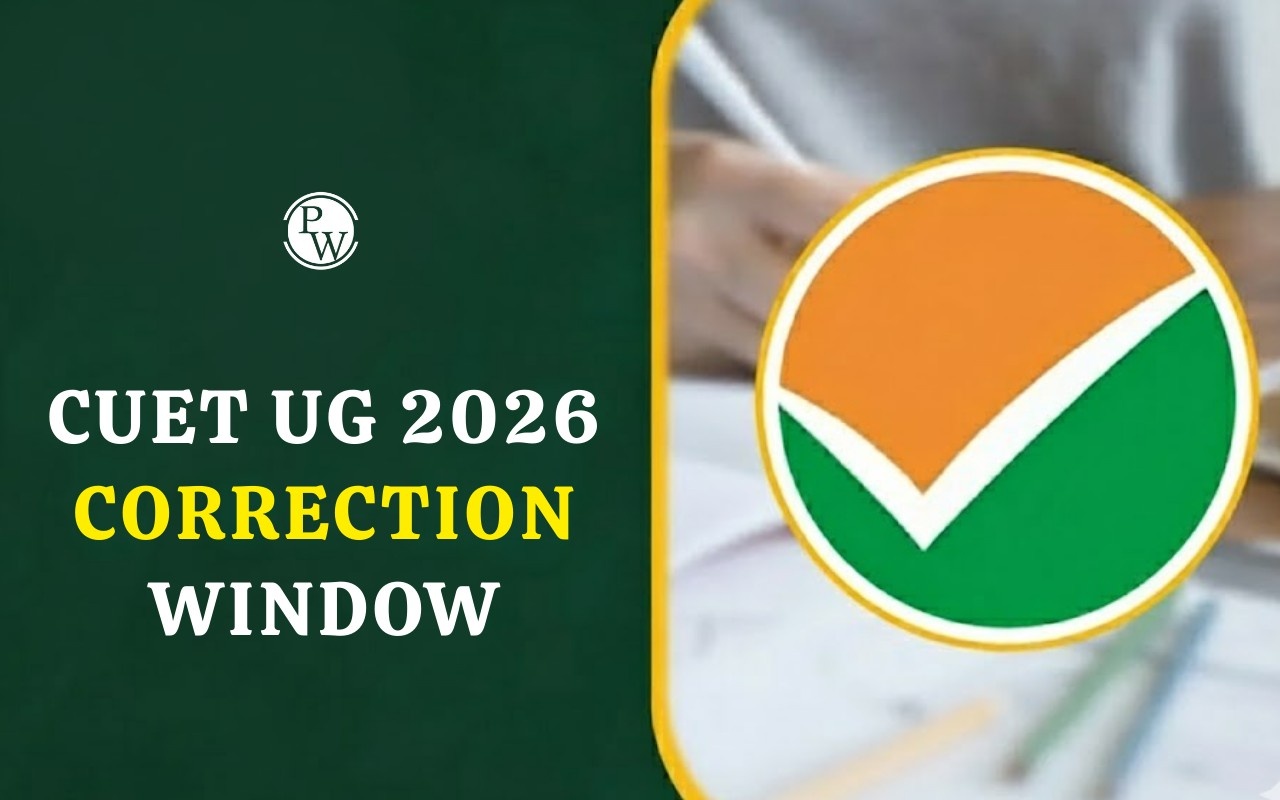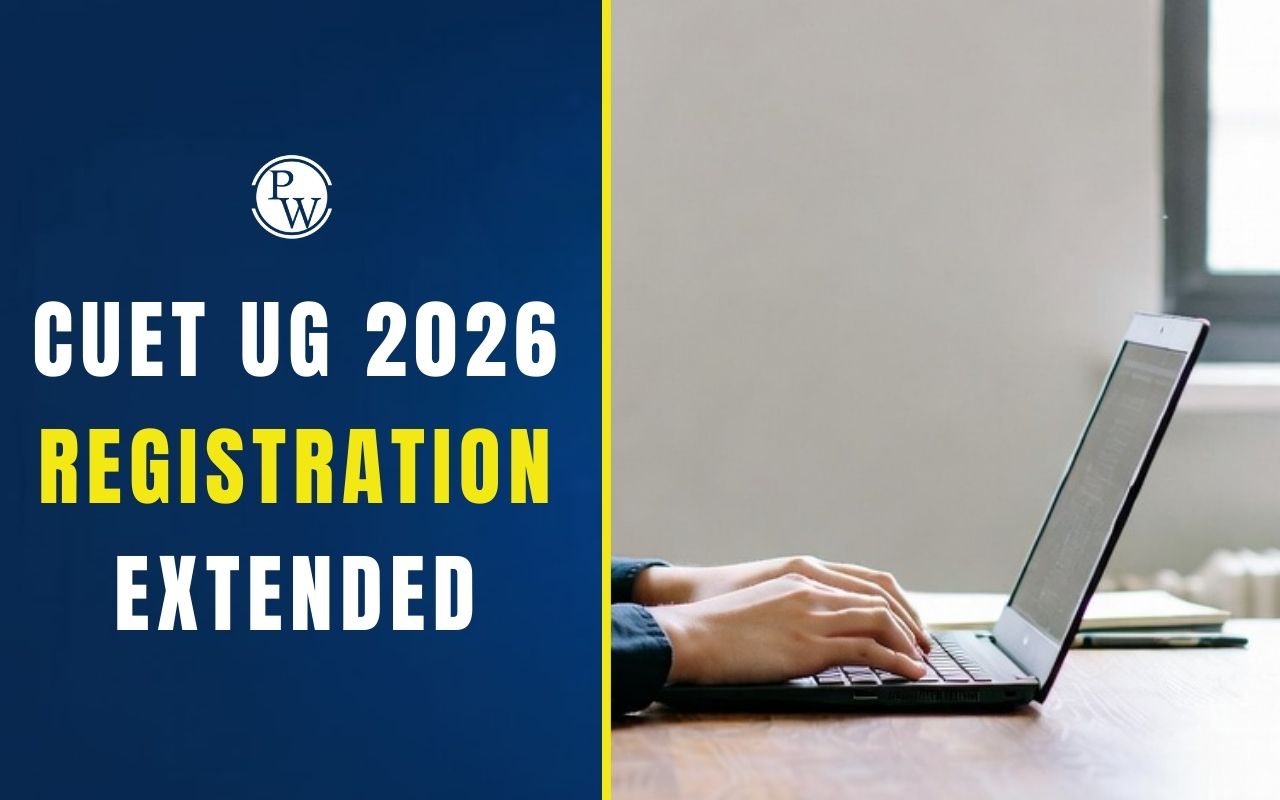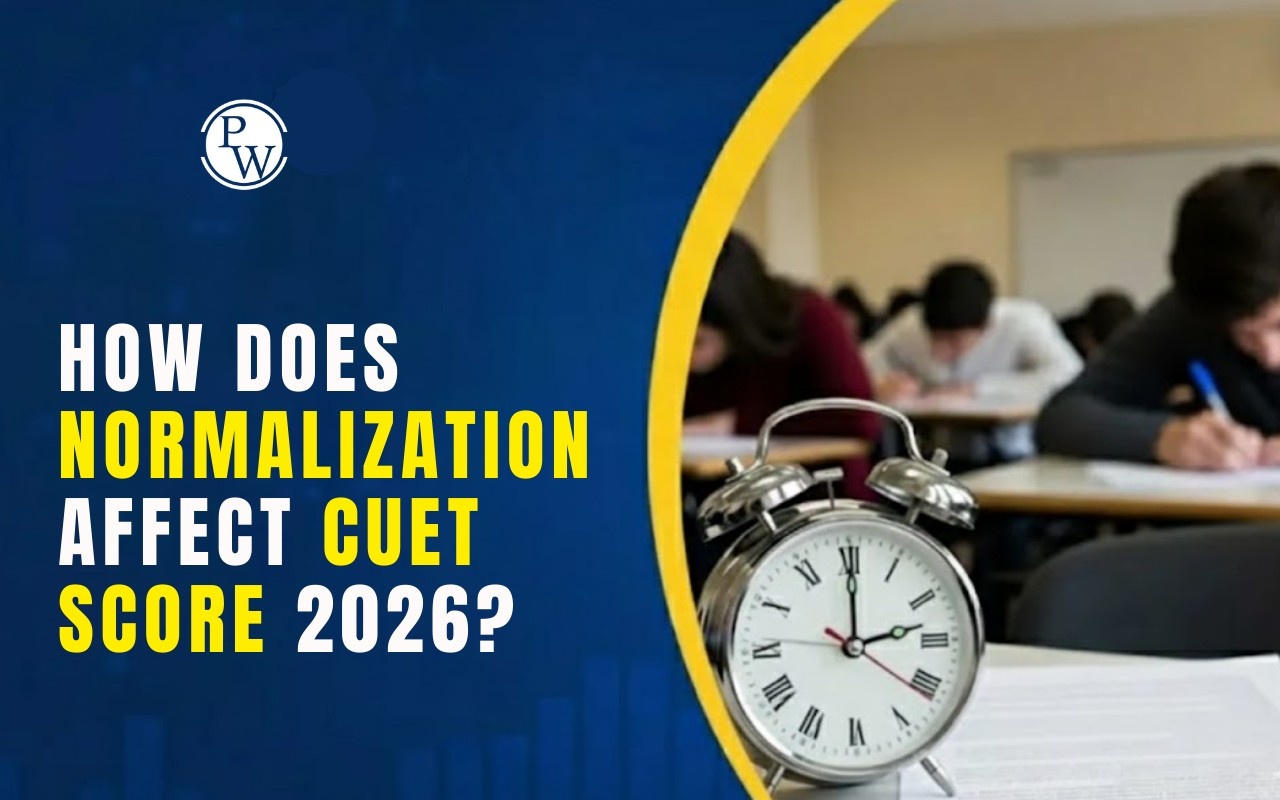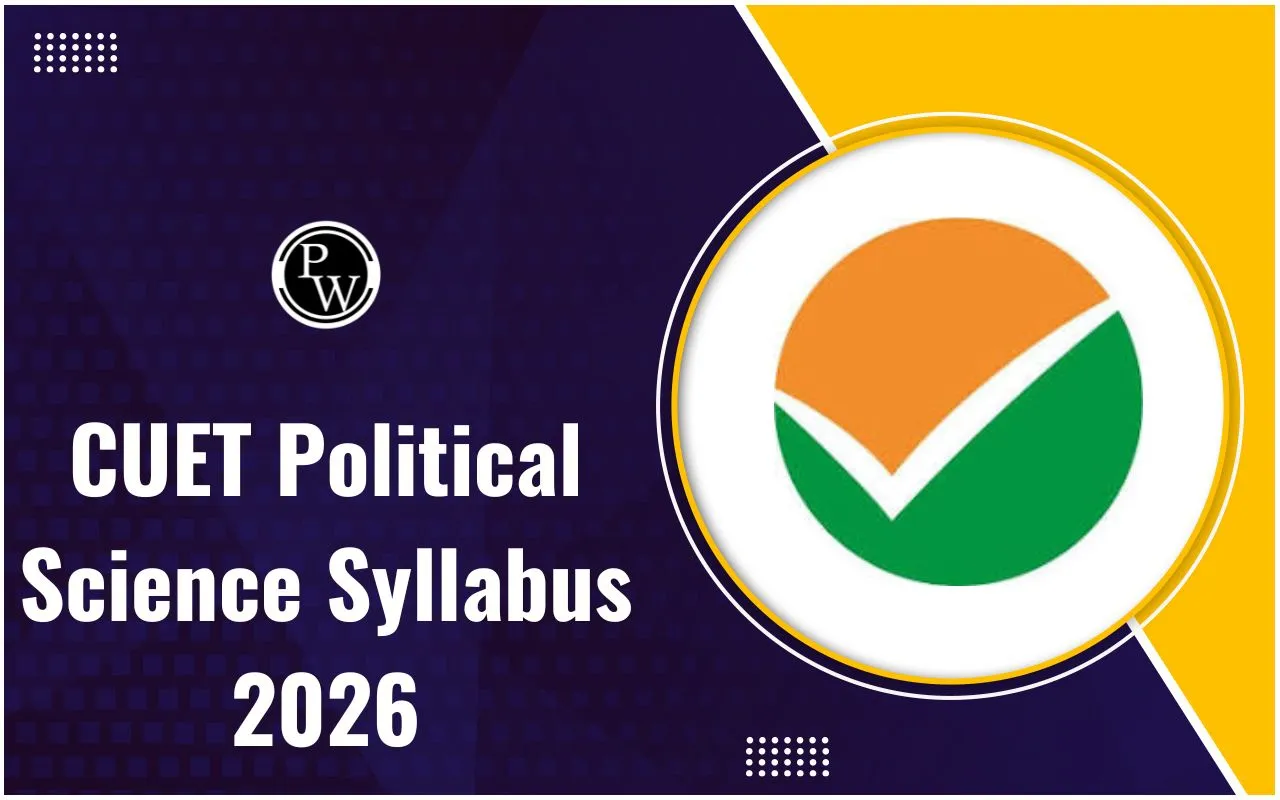
Numerical Aptitude Syllabus for CUET UG 2025 : The Numerical Aptitude section of the CUET UG 2025 exam plays a crucial role in assessing a student’s ability to solve mathematical problems, apply numerical techniques, and demonstrate logical reasoning skills.
This section is designed to test a candidate’s understanding of basic mathematical concepts and their ability to perform calculations quickly and accurately. The questions are aimed at measuring the numerical reasoning and problem-solving skills required for higher education programs.
CUET UG Numerical Aptitude section primarily covers a range of topics from basic mathematics and arithmetic, ensuring that students can handle numerical data, apply formulas, and use logical reasoning to find solutions.
Key Topics in Numerical Aptitude Syllabus for CUET UG 2025
Numerical Aptitude section of the CUET UG 2025 exam focuses on testing a student's ability to solve mathematical problems, apply formulas, and perform calculations efficiently. Below are the key topics covered under the CUET syllabus For Numerical Aptitude :
1. Number System Topics in Numerical Aptitude Syllabus
-
Key Concepts:
-
Types of numbers (natural numbers, whole numbers, integers, rational numbers, irrational numbers, real numbers)
-
Prime numbers, factors, and multiples
-
LCM (Least Common Multiple) and HCF (Highest Common Factor)
-
Divisibility rules
-
Decimal and fraction conversion
-
Importance: Understanding the number system is fundamental to solving problems related to divisibility, simplification, and factorization.
2. Percentage Topics in Numerical Aptitude Syllabus
-
Key Concepts:
-
Calculating percentage, profit, and loss
-
Percentage increase and decrease
-
Discount calculations
-
Conversion between fractions, decimals, and percentages
-
Importance: Percentages are used in various real-life situations like calculating discounts, interest, and growth rates, making this topic highly applicable to academic and professional scenarios.
3. Profit and Loss Topics in Numerical Aptitude Syllabus
-
Key Concepts:
-
Understanding the cost price (C.P.), selling price (S.P.), and profit/loss
-
Profit percentage and loss percentage
-
Discount and commission
-
Partnership profit distribution
-
Importance: The ability to calculate profit and loss is vital in financial decision-making, business operations, and economics.
4. Ratio and Proportion Topics in Numerical Aptitude Syllabus
-
-
Understanding ratios and proportions
-
Solving problems related to shared quantities
-
Direct and inverse proportion problems
-
Mixture and allegation problems
-
- Importance: Probability is widely used in fields like statistics, finance, risk assessment, and games of chance, and it helps in making informed predictions based on data.
-
Ratios and proportions help students understand relationships between different quantities, which is useful in various practical scenarios like comparing speeds, costs, and ingredients in recipes.
5. Time and Work Topics in Numerical Aptitude Syllabus
-
Key Concepts:
-
Work efficiency and time taken by individuals or groups to complete a task
-
Problems involving multiple workers or machines
-
Work-time relationships
-
Applications of rates (e.g., work done by pipes, tanks, or machines)
-
Importance : Time and work problems assess the ability to calculate time management and resources effectively, which is essential in both academic and everyday life situations.
6. Speed, Distance, and Time Topics in Numerical Aptitude Syllabus
-
Key Concepts:
-
Formulae related to speed, time, and distance
-
Problems on relative speed, average speed, and time taken for multiple trips
-
Applications in real-life situations such as travel, delivery, and movement
-
Importance: These concepts help evaluate a student’s understanding of motion and its applications, relevant to both theoretical and practical scenarios.
7. Simple and Compound Interest Topics in Numerical Aptitude Syllabus
-
Key Concepts:
-
Formulae for calculating simple and compound interest
-
Time period and principal relationship
-
Applications of interest in financial matters, loans, and investments
-
Importance: Understanding interest is crucial for financial planning, loans, and investments, which are core aspects of both personal and professional finance.
8. Mensuration (2D and 3D) Topics in Numerical Aptitude Syllabus
-
Key Concepts:
-
Area, perimeter, and volume of geometric shapes (circles, triangles, squares, rectangles, cubes, cylinders)
-
Surface area and volume of 3D shapes
-
Applications in calculating material costs, land area, and storage
-
Importance: Mensuration is widely used in various fields, including architecture, engineering, and design, as it deals with the measurement of physical spaces and objects.
9. Algebra Topics in Numerical Aptitude Syllabus
-
Key Concepts:
-
Basic algebraic expressions, equations, and inequalities
-
Simplification of algebraic expressions
-
Solving linear equations and quadratic equations
-
Roots, powers, and logarithms
-
Importance: Algebra is fundamental in solving equations and understanding relationships between variables, which are critical skills in many fields like economics, engineering, and science.
10. Data Interpretation Topics in Numerical Aptitude Syllabus
-
Key Concepts:
-
Understanding and interpreting data in the form of tables, bar graphs, pie charts, and line graphs
-
Analyzing trends, averages, and proportions
-
Solving questions based on given data sets
-
Importance: Data interpretation helps assess how well a student can analyze and draw conclusions from given numerical data, a skill required in decision-making, business, and research.
11. Probability Topics in Numerical Aptitude Syllabus
-
Key Concepts:
-
Basic probability concepts, such as the likelihood of events
-
Probability formulae and their applications
-
Problems on combinations and permutations
Importance : Probability is widely used in fields like statistics, finance, risk assessment, and games of chance, and it helps in making informed predictions based on data.
CUET General Test Exam Pattern 2025
The CUET Exam Pattern 2025 For General Test is structured into three sections, each focusing on different areas of knowledge and skills. Below is the breakdown of the exam pattern:
-
Section 1A (Languages):
-
Subject : Testing of various languages based on reading and vocabulary skills.
-
Question Type : Multiple-choice questions (MCQs).
-
Number of Questions: 40 questions to be attempted out of a total of 50.
-
Section 1B (Optional Languages):
-
This section allows students to select an optional language to test their language proficiency.
-
Section 2 (Domain Specific):
-
Subject: MCQs based on the NCERT syllabus.
-
Number of Questions: 35-40 questions to be attempted out of a total of 45-50.
-
Section 3 (General Test):
-
Subject : Includes General Knowledge (GK), Current Affairs, Logical and Analytical Reasoning.
- Number of Questions: 50 questions to be attempted out of a total of 60.
Preparation Tips for Numerical Aptitude Section
To perform well in the Numerical Aptitude section of CUET UG 2025, it is essential to:
-
Understand the basic concepts: Master the core principles of each topic and practice solving a variety of problems.
-
Practice regularly: Solve CUET previous year’s question papers, take mock tests, and work through practice problems to improve your speed and accuracy.
-
Work on time management: Since there are negative marks for incorrect answers, focus on answering questions quickly but accurately. Avoid guessing unless you’re confident in your choice.
-
Use shortcuts and tricks: Learn shortcuts for calculations to save time and improve efficiency during the exam.
Study Material For CUET 2025 Preparation
Comprehensive guides, practice papers, mock tests, and video lectures designed to help students excel in the CUET 2025 exam.
| Study Material For CUET 2025 Preparation |
| Checkout CUET Books from PW Store |
| Checkout Question Banks from PW Store |
| Checkout Mock Test from PW Store |
Numerical Ability Topics for CUET UG 2025 FAQs
Q.1 : What is the purpose of the Numerical Aptitude section in CUET UG 2025?
Q2 : How many questions are expected from the Numerical Aptitude section in CUET UG 2025?
3. Is it necessary to study advanced topics for the Numerical Aptitude section of CUET UG 2025?
Q4 : How can I prepare for the Numerical Aptitude section in CUET UG 2025?










